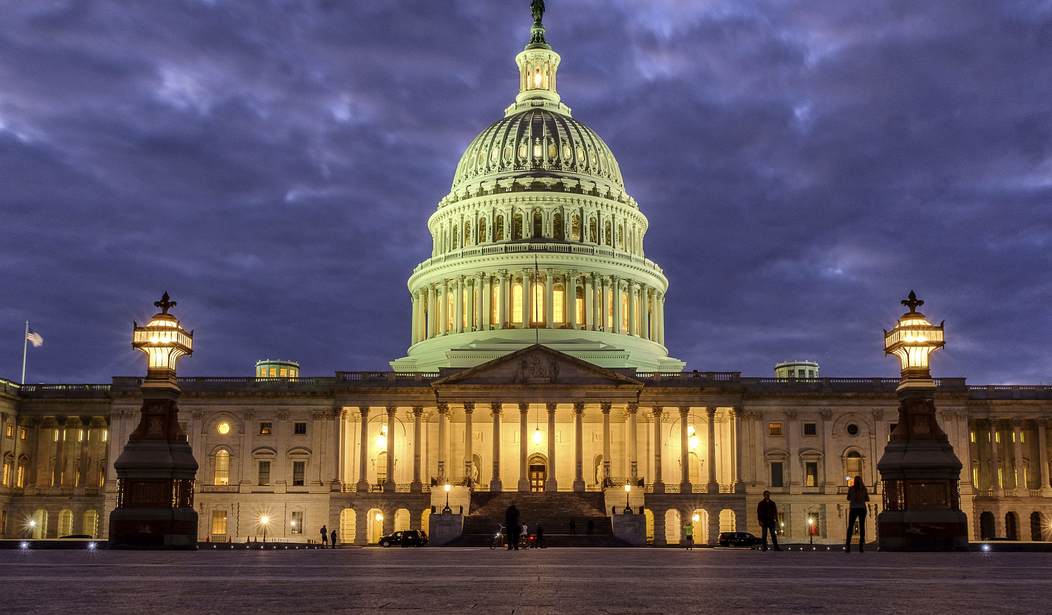Last year's tax reform represented a first step toward improving the tax code by making it simpler, fairer and slightly less distortive. As Congress considers taking up a so-called tax-extenders bill before the new Democratic-controlled House is seated, any hope of continuing a reformation requires vigilance against returning to those old ways through a ritualistic revival of expired special-interest tax breaks.
Tax extenders are temporary and narrowly targeted tax provisions for individuals and businesses. Examples include the deductibility of mortgage-insurance premiums and tax credits for coal produced from reserves owned by Native American tribes. According to the Tax Foundation's Erica York, "Twenty-six now expired provisions are under congressional review to determine whether they merit a permanent place in the tax code. The ten-year cost of making all 26 provisions a permanent part of the tax code would be $92.5 billion." She adds, "More than half of the remaining provisions are tax credits that subsidize certain economic activities."
These tax provisions were last authorized as part of the Bipartisan Budget Act of 2018, which retroactively extended them through the end of 2017, after which they have thus far been left to remain expired. If Congress indeed takes up extenders during the current lame-duck session, any extended provisions are likely to once again apply retroactively through the end of 2018, or perhaps longer.
There are several problems with this approach to tax policy. Frequently allowing tax provisions to expire before retroactively reauthorizing them creates uncertainty that undermines any potential benefits from incentivizing particular behaviors. Each extender provision restarts an economically unproductive political feeding frenzy that only benefits lobbyists.
Another issue is that not all tax extenders are a problem. Some are meant to avoid or limit the double taxation of income that's common in our tax code. Those extenders should be preserved. Yet others are straightforward giveaways to special interests. Those should be eliminated.
Recommended
But this difference among tax extenders means that keeping all of them, terminating all of them or allowing them to expire (only to revive them every so often) is a terrible way to run tax policy. Unfortunately, such confusion and inefficiency are seldom obstacles to politicians who craft tax policy.
Tax extenders also enable deceptive budgeting practices. The budget baseline established by current law shows higher tax and revenue projections because it -- unrealistically -- assumes that the tax-extender policies last only until the end of their current extension. That means that the special-interest benefits thought to be temporary provisions aren't appropriately reflected in budget projections.
It's time for a new approach under which tax extenders are evaluated and debated on their individual merits. The emphasis should be on eliminating special-interest handouts or provisions that otherwise represent bad policy. Conversely, any and all worthy provisions should be made permanent features of the tax code.
As it happens, seven of the 26 extender provisions -- namely, those dealing with business-cost recovery mechanisms like the "three-year write-off period for racehorses two years or younger" -- were rendered moot by the Tax Cuts and Jobs Act. This means that almost all of the provisions now up for consideration are exclusively special-interest privileges, which should be left to expire and never revived. They bestow narrow benefits on specific industries, such as credits for renewable energy production and biodiesel. Reauthorizing these provisions would be incompatible with any tax-reform effort that purports to make the tax code simpler and less distortionary in nature.
Earlier this year, House Ways and Means Committee Chairman Kevin Brady, R-Texas, proposed to do just that. He called for a "rigorous test" to determine which of the temporary provisions are worth keeping and which should be allowed to permanently expire, and he promised to draft legislation to achieve these laudable objectives.
That proposal just came out this week. Unfortunately, it fails to take a hard look at tax extenders, as Brady promised. In fact, it extends most of the provisions that should have been terminated, making this exercise -- once again -- a great example of the power of special-interest politics over good economics.
The dire need to fix the federal budget, along with the dysfunctional effects from extenders, should provide the additional motivation needed to end this practice once and for all.

























Join the conversation as a VIP Member